James Packer opens up about family life and financial success
In an exclusive wide-ranging interview, James Packer has opened up about his children and ex-wives, weight gain, why he felt the need to leave Australia and comparisons to his father Kerry.
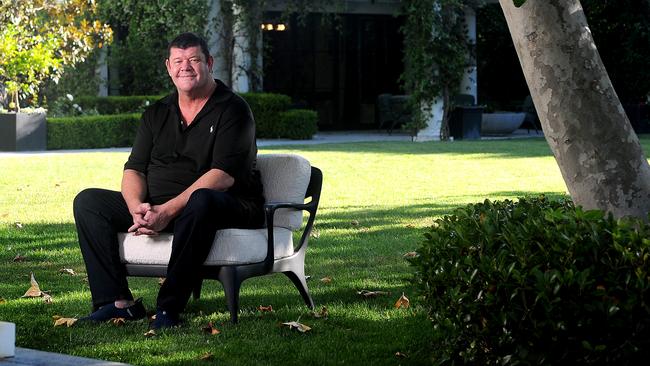
NSW
Don't miss out on the headlines from NSW. Followed categories will be added to My News.
James Packer is looking forward to the future. Renewed financial success and good times with his three children have reinvigorated Australia’s one-time richest man.
But it’s not perfect.
In a personal and raw conversation, James, 56, reveals the toll his battle with weight and mental illness has taken. And despite his deep love for and pride in Australia he now feels he has no choice but to live overseas, out of the shadow still cast by his late father Kerry – even now, more than 18 years after he passed away.
James’ troubled relationship with his dad has been well documented. But in this extraordinary interview from his Los Angeles home, the son has emerged upbeat, humble and grateful for the life he now leads.
Q: How is life now? You seem to be in a good place.
A: It’s nice to be talking and especially as Sydney will always be in my blood, so it's a pleasure to have a chance to talk to the people who live in that great city. I’m doing OK. Better in some ways than others, but overall can’t complain at all, and am looking forward to the future.
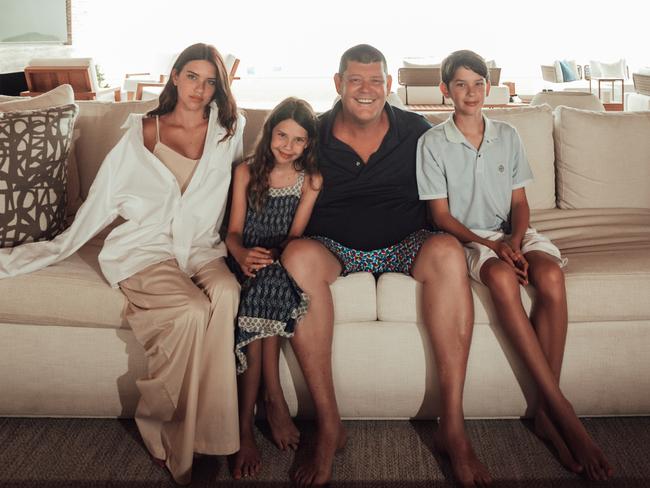
Q: Has your break from Australia given you a chance to focus more on fatherhood?
A:My kids and their mum Erica have moved from LA to London and they’re all thriving and that makes me so happy to see. That’s the single most important thing for me to see in my life. I’m really happy that they are getting to grow up anonymously. In London their surname is not particularly well known and they are three kids aged 15, 14 and 11 who seem to grow taller, smarter, funnier and more human every day. I’m so proud of them all and Erica is a simply amazing mother. She has done a superb job with our kids bringing them up.
Q: You’ve had your battles with weight over the years. How are you travelling with that right now?
A: Not everything is perfect. I did a good job of losing a lot of weight last year. It’s been documented before that I’ve had mental health issues. I was first diagnosed as being bipolar in 2016 I believe, and since then I’ve seen a number of different psychiatrists in a number of different countries and they’ve prescribed me a series of different medications. I’ve found that nearly all these medications are bad for your weight.
I sold Crown in June of 2022 and was making a real effort to get off all these medications to see whether I could do that and simultaneously I was trying to lose weight. To cut a long story short I got my weight down to about 115kg at the end of July 2022, but then ballooned to 170kg by the time I came back to Sydney in late March of 2023. In the middle of last year I regrouped and stopped drinking and smoking and changed my medication, and my weight got down to 110kg by the end of January. At that weight I went skiing this year for the first time in seven or eight years. I was going for long walks … everything was getting better.
I’m embarrassed to say that while I had stopped eating sugar for some time, I started again in February and I’ve put a lot of the weight I lost, back on. This time it’s not the medication — I’m off nearly all of those — I just need to be more disciplined. I love sugar so much!
So I am going to address my weight again, but, to be honest, weight for me is a bit of a constant struggle.
But mentally I feel in the best place I’ve felt in years and I’m getting on with my kids better than I ever have. I’m incredibly lucky and try to remind myself of that every day and be grateful every day to have been given all the blessings I’ve been given in life.
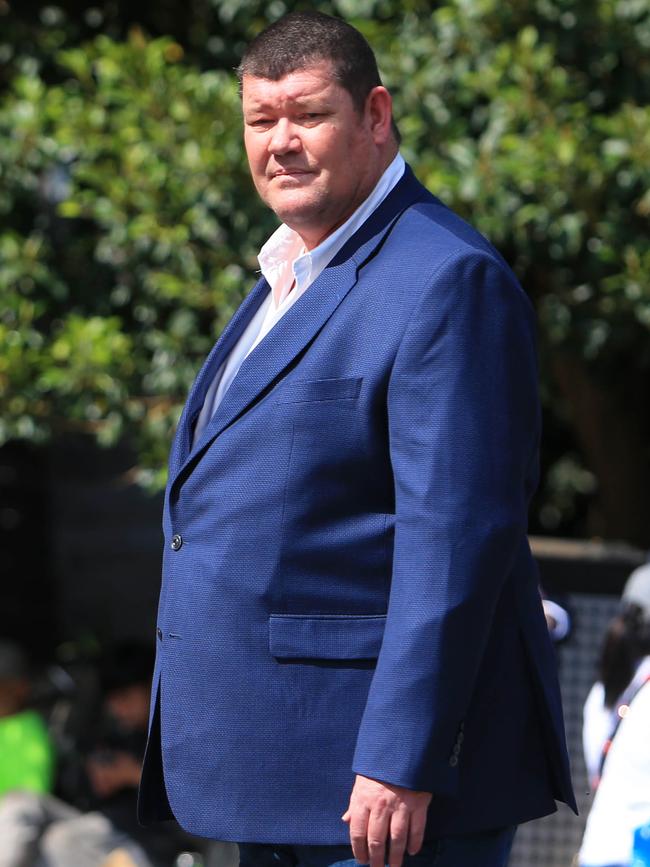
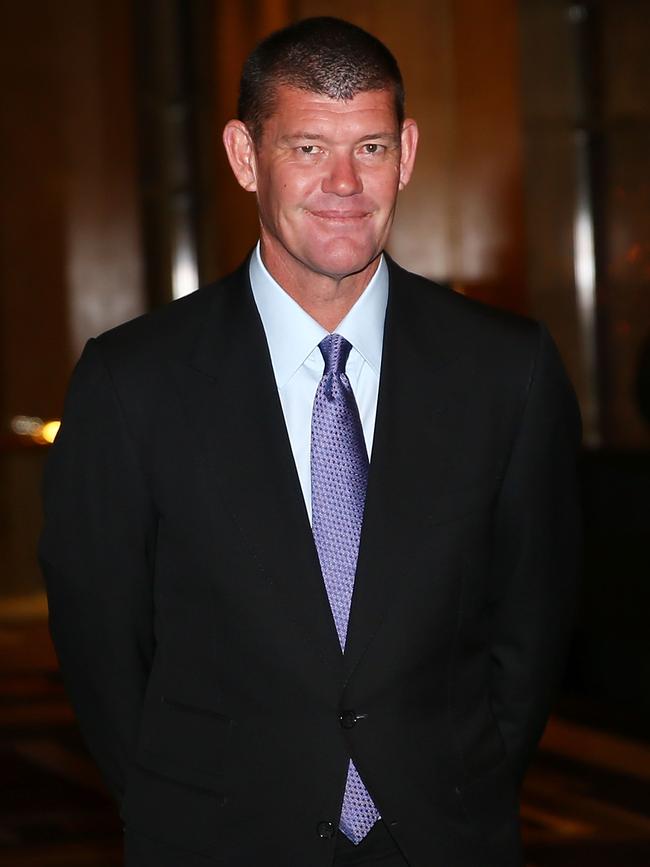
Q: Do you have people you can trust and lean on?
A: I have some wonderful friends. I don’t have many friends, but I have some wonderful friends. They know who they are. And I’m making an effort to reconnect with some old friends I haven’t seen for a while. I’m going on holiday in a few weeks with a schoolmate who was one of my co-best men at my first wedding to Jodhi Meares — who is still a dear friend and one of the coolest and classiest ladies I’ve ever met.
Q: You’ve had some conspicuous success recently on the investment front. Has it reinvigorated your passion for business?
A: I’ve had some wins on the business front for the first time in a long time. I have a wonderful business adviser, Daniel Nadler, he is a genuine polymath, and he is an expert in AI. Read his Wikipedia and you’ll see what I mean! In truth, the only reason I’ve had some wins recently is because I’ve taken his advice. He hosted the AI panel at Davos two years in a row and is a Harvard PhD. He was going to be an academic and he had received tenure at Stanford for a prestigious position but became a serial entrepreneur instead along the way.
Daniel’s day job is running a company that employs about 12 Massachusetts Institute of Technology and Harvard PhDs and they use large language models to read in real time any and all medical research ever published, and all new research, published in real time.
It is simply impossible for a human to stay on top of the vast volume of new medical research that is published on almost a daily basis. Daniel wants his company OpenEvidence to have the best database for healthcare information in the world. What a wonderful way to help people, by ensuring they have access to the latest and highest quality research — and what a great business opportunity.
I’m very proud to say Daniel let me be the first outside investor in his new company. This is his second AI company — his first was sold for $700m in 2018 which, back then, was a record for an AI company.
Talking about Nvidia, Daniel believes that Jensen Huang is probably the best CEO in the world and he has been saying that to me for two years. As I said, the money I have made on the markets is because I believed in Daniel’s expertise and I put it in a fund that he runs for me. The fund has only been operational for around eight months now, when I made the decision to be more concentrated in technology. The returns so far have been outstanding. Daniel’s fund is up about 90 per cent for me in that eight-month period.
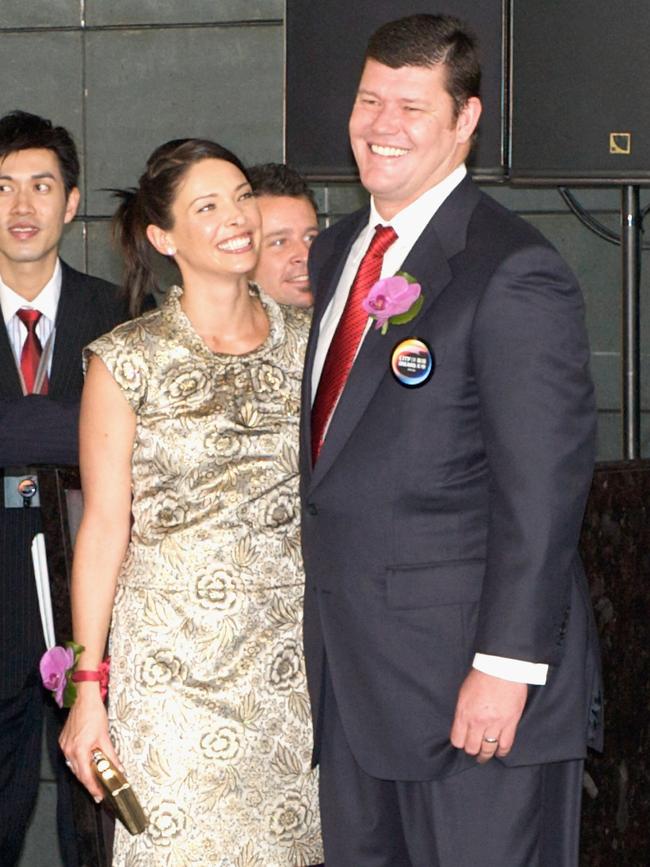
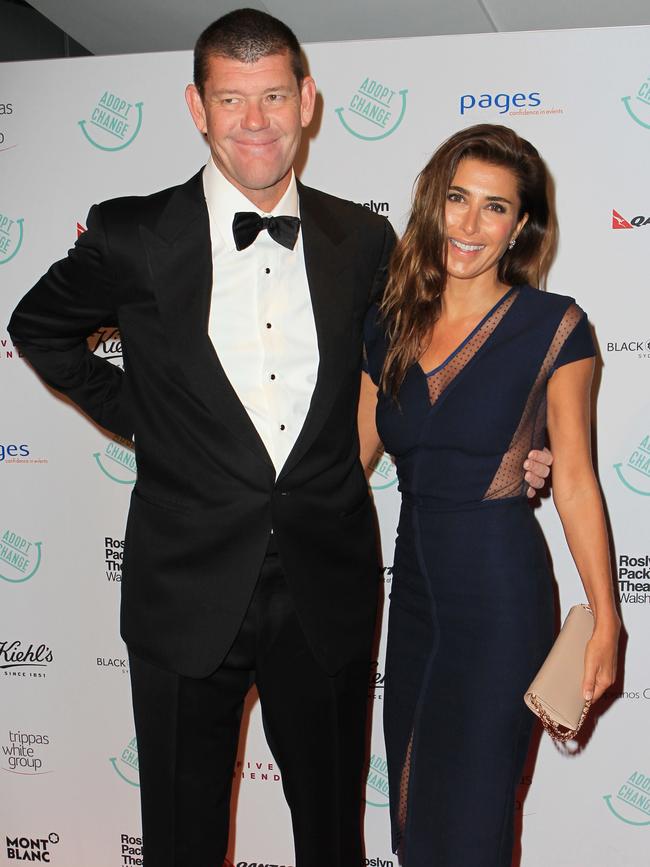
Q: Some observers are suggesting Nvidia is fully valued, but do you see more upside? More generally, what’s your view on AI? Dystopian nightmare, utopian dream or somewhere in between? Should Aussies be embracing opportunities in this space? How significant is this technology – how would it compare to the arrival of the internet?
A: It was Nvidia’s AGM recently and their CEO Jensen made some amazing comments. The bearish case on Nvidia invariably compares it to Cisco before the dotcom bubble burst. Jensen was talking about their new platform/chip Blackwell which is about to be released. He said not only will Blackwell likely be the most successful product in Nvidia’s history, it could be the most successful product in the history of the computer.
I should say that in terms of Daniel’s portfolio for me, we also hold Meta and Taiwan Semi. Daniel also believes there will be a shortage of electricity as AI is going to use more electricity than anyone was planning for. Simplistically, it takes 10 times more electricity to do a search on Chat GPT than it does on Google.
Daniel is very generous with his time and with his emotions and he has helped me understand a little what’s happening in AI. To be honest, most of it is above my head, but the little I understand is mind blowing.
I was watching a clip on TikTok this morning where Bill Gates said about AI, “We’re seeing a fundamental advance as important as anything in the history of digital technology”.
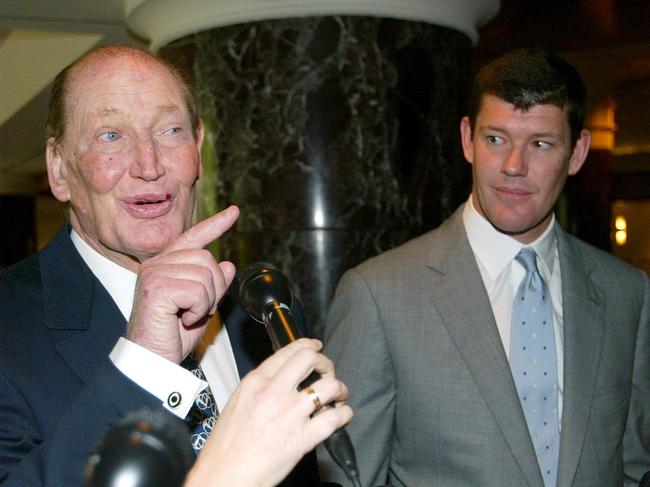
Q: You are splitting your time between the UK and the US. How do you manage that? Do you foresee that continuing for any length of time? Would you anticipate coming back to Australia permanently at any point?
A: I do live a peripatetic life, for better or worse. The truth is, my dad’s shadow became too big for me to live under in Australia. The simple fact is I am not as good a businessman as he was and I got tired of the constant comparisons and judgments. I tried to make Crown a success, and to succeed in a different industry to my father’s first love, the media. I am also a shy person by nature and didn’t enjoy being a public figure.
So I don’t really know where home is yet. I’m still trying to work that out. I am very lucky and I have houses in America, Mexico, Argentina, Israel and an apartment in Crown Sydney, as well as my boat. I repeat, I am incredibly lucky.
Q: If I could ask you about the Middle East, a region close to your heart, does it pain you to see Israel at war? More broadly, has the upsurge in anti-Semitism across the globe surprised you?
A: The Middle East peace is one of the most difficult issues in the world. Like AI, it is above my pay grade. When politicians are doing well domestically, it seems to me — especially when they are US presidents, for example — they try and involve themselves in Middle East peace processes, and so far even they have been unable to bridge the chasms.
It is heartbreaking to see all the death and destruction. I am worried about anti-Semitism being on the rise.
I am not Jewish, but I am a Zionist.
Q: It was fantastic to see you in Las Vehas for the NRL launch. What was your impression of the game that evening? Do you think the game has a chance to succeed in the US, if we define success as finding a big enough audience to drive a revenue stream?
A: It would be wonderful if the game could grow in America and I know how much Lachlan Murdoch loves rugby league, and that is a huge starting point. I have no idea the status of the relationship between Fox Sports in America and the NRL, but that’s the place to start.
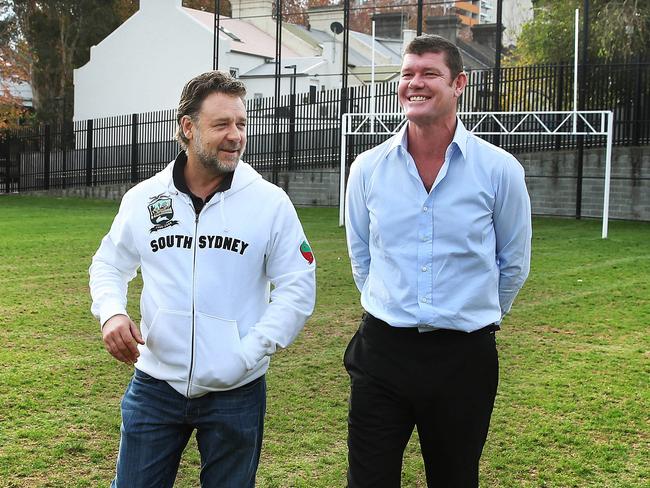
Q: On the Rabbitohs, they seem to have turned a corner, perhaps too late for this season. But does it give you some optimism for next year, with the return of Wayne Bennett? Do you think they’ve got the roster to challenger for a title?
A: I feel I am largely a passenger when it comes to the Rabbitohs. Russell’s (Crowe’s) understanding of rugby league and his passion is second to none and we have a solid board led by Nick Pappas. I do love the club, its place in society and everything it stands for.
Q: Are you going to try to get to the Olympics next month?
A: Like all Australians I will be cheering for our Olympic team, but I will not be attending.
Q: You posed up for a photo with Damien Chapman. Is he important to you?
A: Damien’s amazing. I’d call him something of a life coach. He’s fantastic. But he’s publicity shy and probably wouldn’t be happy about me talking him up.
Q: Julian Assange has dominated headlined here all week as he headed home to Australia, You helped his cause at one point with a donation. What was it about him that inspired you to help?
A: I was very happy to see that Julian Assange was freed from captivity this week. I think the Prime Minister and Kevin Rudd and Stephen Smith and Jen Robinson all deserve congratulations. I fall on the side that Assange was a journalist, and I don’t like it that Americans get First Amendment protections — freedom of speech — and that America does not recognise non-Americans having freedom of speech rights. But regardless of whether Assange was a journalist or not, he has been punished enough and had been in captivity long enough. It was time for him to be released.
It seems to me that the Prime Minister and his team continue to show form in handling sensitive foreign policy matters. There is no doubt that Labor has handled our relationship as a nation with China with far more subtlety and intelligence than the previous government showed, and now they have backed it up with Assange. And it was ridiculous of the Liberals to criticise the PM for speaking to Assange on his landing in Australia. I was also moved, and it showed the seriousness of the situation, when Assange’s first words to the PM were – “You saved my life.”
And I also think Jennifer Robinson as Australia’s pre-eminent human rights lawyer is a star. We are going to hear more and more about her.
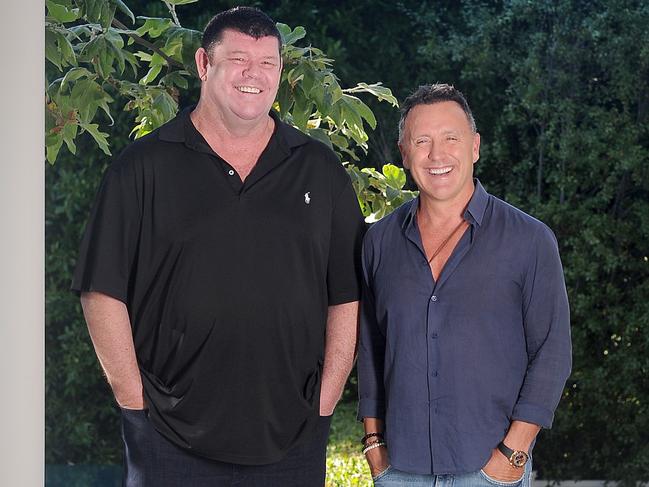
Q: You are right in the middle of two elections that will potentially reshape the world. Starting with the US, what’s your sense of how Americans will vote in November?
A: I am much closer to the US election than I am to the UK election. The bookmakers had Trump as a slight favourite before the debate, but the debate could change everything. Looking at politics in America, the UK and France at the moment, I would say there is one constant — discontent. France is moving to the right. The UK to the left. The electorate is unhappy. Whether it’s inflation, interest rates, immigration, people are dissatisfied, and they are voting incumbents out.
Q: You’ve got a different perspective on Australia today – viewing it from a great distance and having the ability to directly compare our nation with Europe and the US. How do you think we are faring, relative to other Western nations?
A: As a proud Australian I was looking online at some statistics recently and it really is remarkable how well Australia is doing. There was an article on the 25 largest countries in the world by GDP and also PPP (purchasing power parity), and GDP per capita. The USA has the highest GDP at $US28 trillion, the second highest GDP per capita at $US85k. Switzerland is the only country in the top 25 countries by GDP with a higher GDP per capita than the USA at $US100k. Remarkably Australia, with the 12th biggest economy in the world with only 26 million people, has the third highest GDP per capita in the world of $US65k.
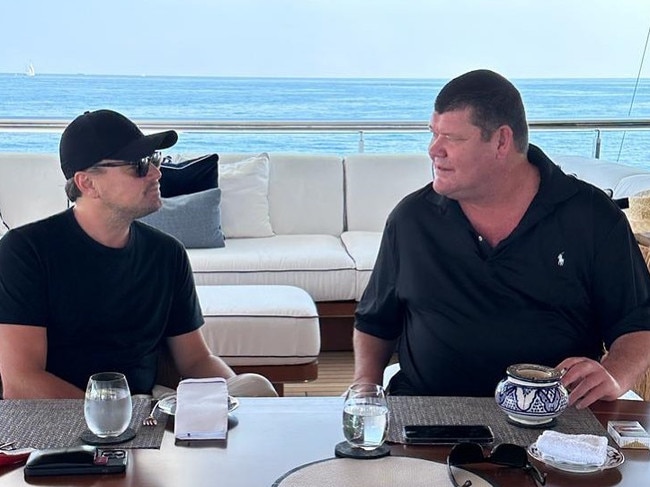
Q: Why do you think we’ve done so well?
A: We cannot forget our unique circumstances that have come together to achieve this. Our largest trading partner, China, has been hugely beneficial for Australian living standards. The rise of China has been unambiguously good for Australia, not bad for Australia. We can never forget that.
In 2000, Australia’s total exports to China were around $5bn. Last year we exported close to $200bn worth of goods and services to China. We run a massive trade surplus with China and an enormous trade deficit with America, our security partner. This is a most unusual circumstance.
Another thing that makes me incredibly proud as an Australian is I saw a survey in the last few weeks that ranked three Australian universities in the top 20 universities in the world. This is incredible — especially when we as a rule don’t have big endowments like universities in the US do.
And then on top of all of those things, there is superannuation. The gift that keeps giving that Paul Keating and Bill Kelty bestowed upon Australia — $3.5 trillion of savings to be invested back into the economy. The third or fourth-largest savings pool in the world from a country of 26 million people. The best economic reform of the last 50 years in Australia — the social consequences of which are easily forgotten.
In America, where there isn’t a savings system anywhere near as effective as Australia’s superannuation, the bottom 50 per cent of the population owns just one per cent of the wealth of the country.
In Australia the bottom 50 per cent of the population owns 11 per cent of the wealth of the country. Reducing wealth disparity is going to be a more critical issue as the gap between the haves and the have-nots only gets larger.
Australia’s pension planning system, designed by Keating and Kelty, is the best in the world. We have so much to be proud of in Australia.
Do you have a story for The Daily Telegraph? Message 0481 056 618 or email tips@dailytelegraph.com.au
More Coverage
Originally published as James Packer opens up about family life and financial success




